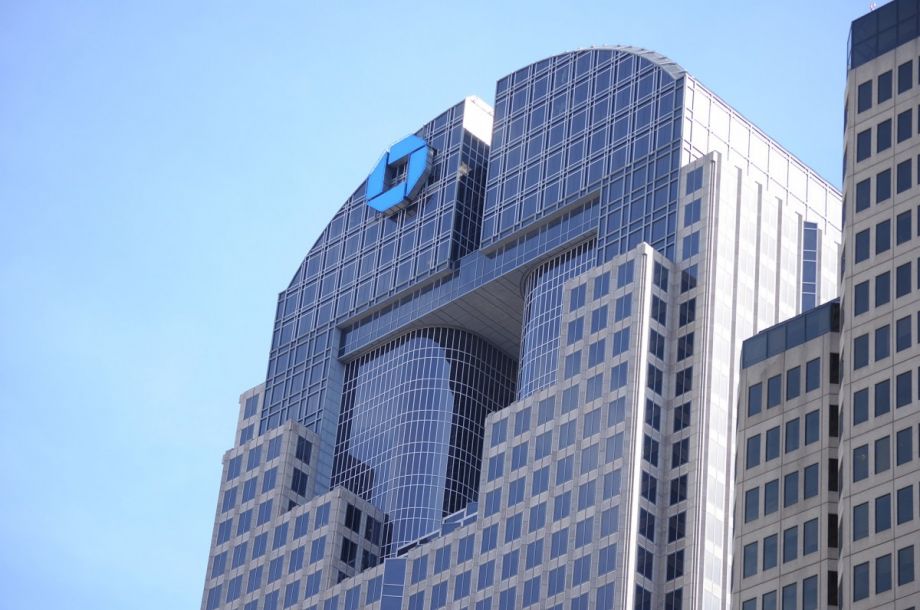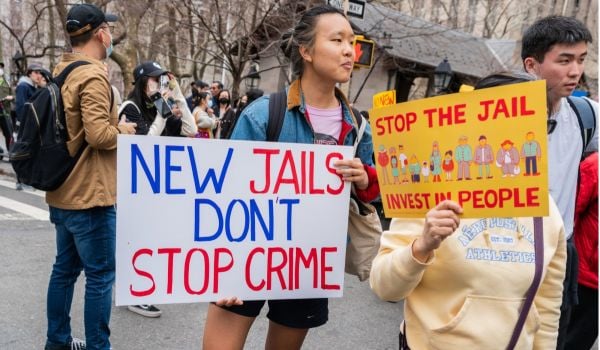JPMorgan Chase & Co will no longer finance private prisons, Reuters reports.
“We will no longer bank the private prison industry,” a company spokesman told Reuters.
Private operators of prisons and detention centers have become targets of protests, especially over Trump-administration related immigration policies. And JPMorgan isn’t the only bank backing away from the industry. According to Reuters, Wells Fargo said it was “not actively marketing” to that industry anymore, and was dialing back its relationship with the industry.
Two-thirds of people held by Immigration and Customs Enforcement are in privately operated detention centers, and private prisons account for 10 percent of federal and state beds, the wire service said.
In 2016, then-Deputy Attorney General Sally Yates directed the Bureau of Prisons to stop federal use of private prisons, after an audit found that private facilities have more safety and security problems than ones run by the government, PBS reported at the time.
At the time, the federal prison population was only about 200,000 people, and the private prison population a fraction of that at 22,500 people, the AP reported. But the announcement caused shares of both CoreCivic and GEO Group, two of the largest prison operators, to plummet 40 percent, Reuters said.
Donald Trump reversed Yates’s order shortly after becoming president and the stocks rebounded. Still, Reuters says, Moody’s and S&P Global have given both companies junk ratings “because their revenues are at risk to changes in government policy and public scrutiny of companies profiting from detention.”
In 2018, Chase, Bank of America and Wells Fargo provided $1.8 billion in loans for three deals for CoreCivic and GEO Group, Reuters said.
Activists have been chasing around JPMorgan Chase’s CEO, Jamie Dimon, for years (literally), although “they’ve gotten louder” since Donald Trump became president, Bloomberg reported. “They’ve tried to get his attention by scaling Park Avenue flagpoles, blocking Seattle traffic with tepees, bursting into conferences, and blasting audio of crying children outside his apartment.” Those activists have protested the bank’s involvement not just in private prisons, but also in fossil fuels and in its divestment from minority communities. Last month, Rep. Alexandria Ocasio-Cortez said she’s interested in holding oversight hearings to “make these banks accountable for investing in and making money off the detention of immigrants,” Bloomberg said.
Both these factors, in addition to the Moody’s and S&P Global “junk” ratings, almost certainly contributed to JPMorgan Chase’s decision. Also a possible factor, at least according to the rumor mill: Dimon has been considered a potential 2020 presidential candidate. Last September, the CEO said he could beat Trump because he’s “as tough as [Trump] is…[and] smarter than he is.” (He later said he regretted his comments and has no plans to run, but as Vanity Fair noted, Dimon has “a long history of claiming he’s not running for President despite saying and doing things that make it sound like” he is.)
CoreCivic said in a statement, reported by Bloomberg, that it’s disappointed in the decision. The company said it doesn’t know the “circumstances of individuals when they are placed in a facility, and our responsibility is to care for each person respectfully and humanely while they receive the legal due process to which they are entitled.”

Rachel Kaufman is Next City's senior editor, responsible for our daily journalism. She was a longtime Next City freelance writer and editor before coming on staff full-time. She has covered transportation, sustainability, science and tech. Her writing has appeared in Inc., National Geographic News, Scientific American and other outlets.
Follow Rachel .(JavaScript must be enabled to view this email address)
















